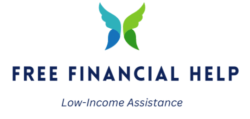Getting a credit card with no credit history can seem challenging, but it’s a crucial step toward establishing a strong financial foundation. Here’s an expanded guide packed with strategies, tips, and important considerations to help you navigate this process.
TABLE OF CONTENTS
Why Build Credit?
Building credit is essential for several reasons. It affects your ability to borrow money for significant investments, like buying a house or car.
Can I Get A Credit Card with No Credit History? (Video)
Understanding Credit Card Basics
Credit cards are powerful financial tools used by millions globally. A recent survey revealed that over 70% of adults in the United States have at least one card.
However, acquiring a credit card can be challenging for those without any credit history. Your credit history is a record of a borrower’s responsible repayment of debts, and without it, lenders are often hesitant to offer credit.
How to Get a Credit Card with No Credit
Step 1: Explore Secured Credit Cards
Secured credit cards are a fantastic starting point. They require a cash deposit that typically determines your credit limit.
This deposit acts as security for the card issuer and minimizes their risk. The beauty of secured cards is that they function like traditional credit cards and report your activity to credit bureaus, thus helping you build credit history.
Step 2: Become an Authorized User
Another effective strategy is becoming an authorized user on someone else’s credit card. This option allows you to benefit from the primary cardholder’s credit history.
However, it’s crucial to have a mutual understanding of spending habits and payment responsibilities, as the actions of one user can affect the credit.
Step 3: Consider Store Credit Cards
Store credit cards are often more accessible for those with no credit. These cards can usually only be used at a specific store and tend to have higher interest rates.
Nevertheless, they are an excellent way to start building credit. Using them responsibly is essential, as high balances and late payments can negatively impact your credit score.
Step 4: Investigate Student Credit Cards
For students, a student credit card is an excellent option. These cards are tailored for individuals with little to no credit history.
They often offer rewards and incentives tailored to student life, like cashback on textbooks or groceries. The key here is to use the card for small, regular purchases and pay the bill in full each month.
Step 5: Use Credit Wisely
Regardless of the type of credit card you choose, using it wisely is paramount. This means making timely payments, keeping balances low, and not applying for too many cards simultaneously. Each credit application can temporarily lower your score, so applying only when necessary is essential.
Understanding Credit Scores
Your credit score is a numerical representation of your creditworthiness. Scores range from 300 to 850, with higher scores indicating better financial situation.
Factors influencing your score include payment history, amounts owed, length of credit history, new credit, and types of credit used.
Regularly monitoring your credit score helps you understand where you stand and how your financial actions affect your credit.
Monitoring Your Credit
Regularly checking your credit report is essential. It helps you track progress, identify errors, and notice fraudulent activities. You are entitled to a free credit report from each of the three major bureaus once a year.
Handling Rejections
Don’t lose hope if you face rejection in your credit card applications. Instead, understand why you were rejected. Often, lenders will explain. This information can help you make necessary adjustments and improve your chances in future applications.
Long-Term Credit Building
Building credit is a marathon, not a sprint. It requires patience, discipline, and consistent financial behavior. Over time, with regular, responsible credit use, your credit score will improve. This improvement opens doors to better financial products with more favorable terms and rates.
Risks and Pitfalls
Debt Accumulation
- Credit cards can make spending money you don’t have easy, leading to high balances that accrue interest quickly, especially if you’re only making minimum payments.
- This can lower your credit score if your balances exceed the suggested credit limits.
Impulse Spending
- With the ease of using credit, impulse buying and unnecessary spending is risky.
- This behavior can lead to financial strain and the inability to pay off the balance in full, resulting in interest charges and potential late payment fees.
Impact of Inquiries
- When you apply for new credit, they pull your credit, and a hard inquiry is made on it, which can slightly lower your score.
- Don’t apply for multiple cards within a short period can accumulate these inquiries, significantly impacting your score.
Minimum Payment Trap
- Paying only the minimum amount due on your credit card can lead to prolonged debt and significant interest accumulation. This extends the time it takes to pay off the debt and means you’ll pay much more due to interest.
In Conclusion
To wrap things up, if you’re trying to get a credit card but don’t have any credit history, don’t worry – there are ways to make it happen. First, look into secured cards. These are great for beginners because they use a deposit you make as your credit limit.
Another option is to become an authorized user on someone else’s credit. This way, you can build your credit without having your card.
That means always paying your bills on time and not spending more than you can afford. By following these steps and being patient, you’ll be on your way to building good credit, which will help you a lot in the future with things like loans and more significant purchases.
Recent Posts
It's not always easy to find free mental health services nearby. Still, some groups offer free and confidential counseling, along with overall support for emotional health, especially for those...
Prayer for a Financial Breakthrough may seem strange for a financial help website. However, when you think about it, prayer is one of the best things you can do when you need help. No matter what...


